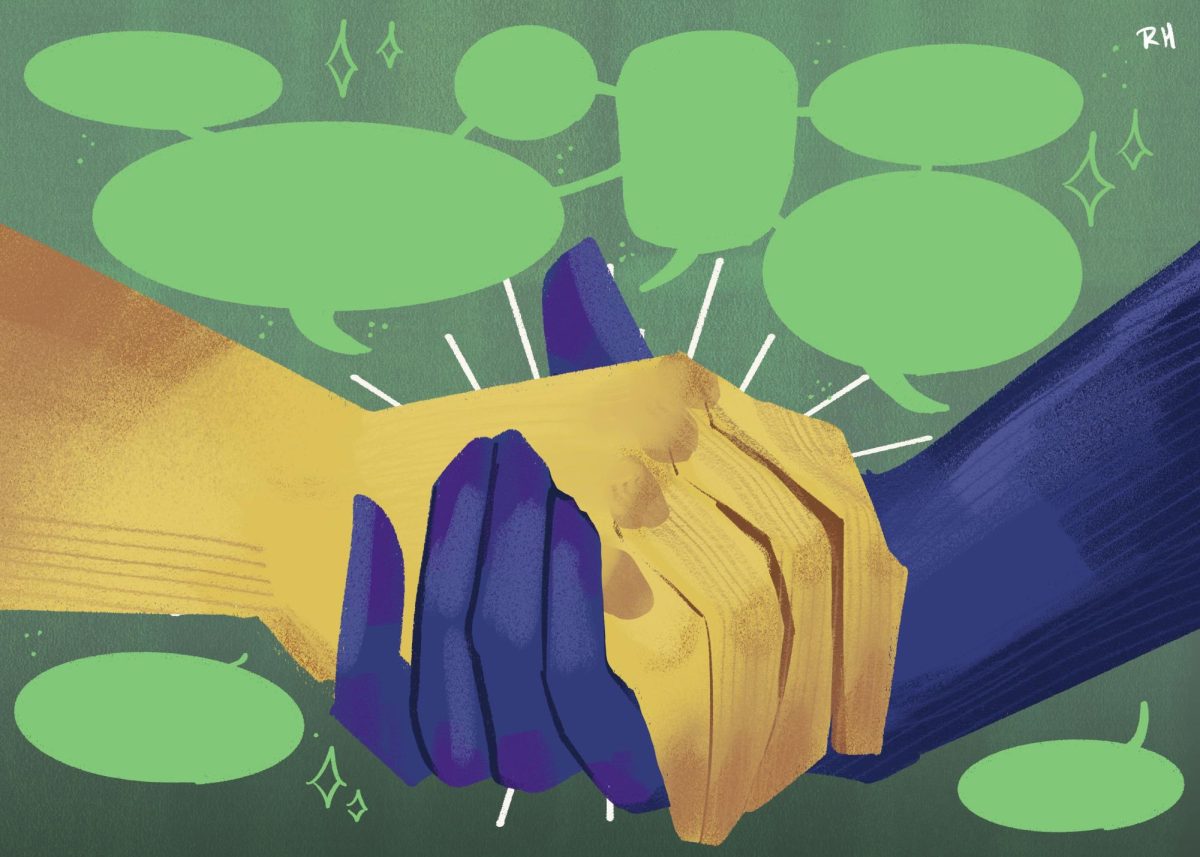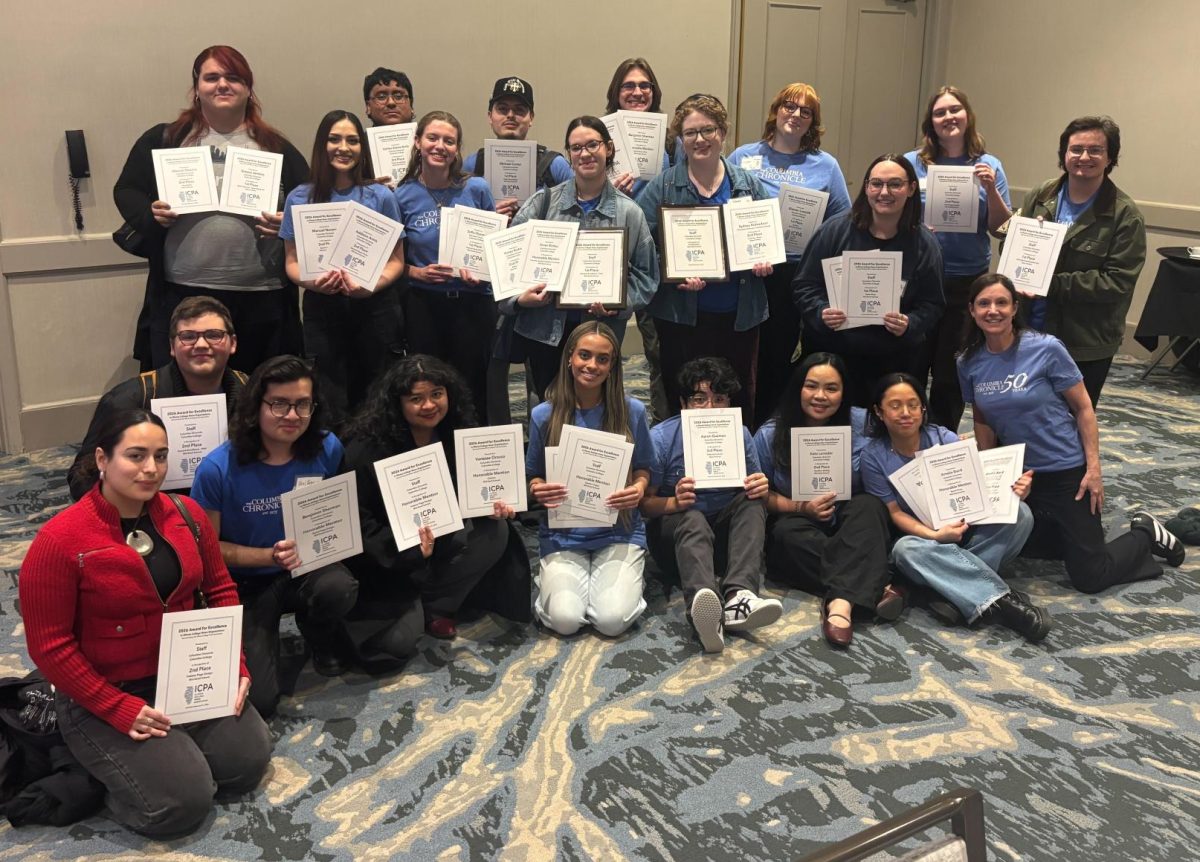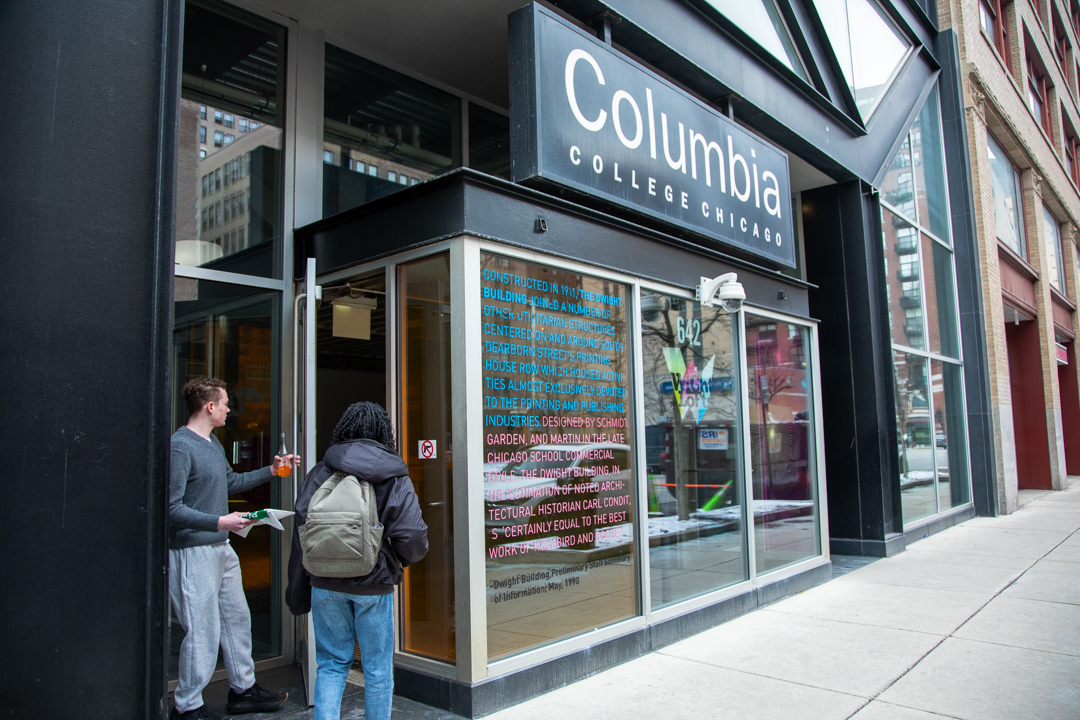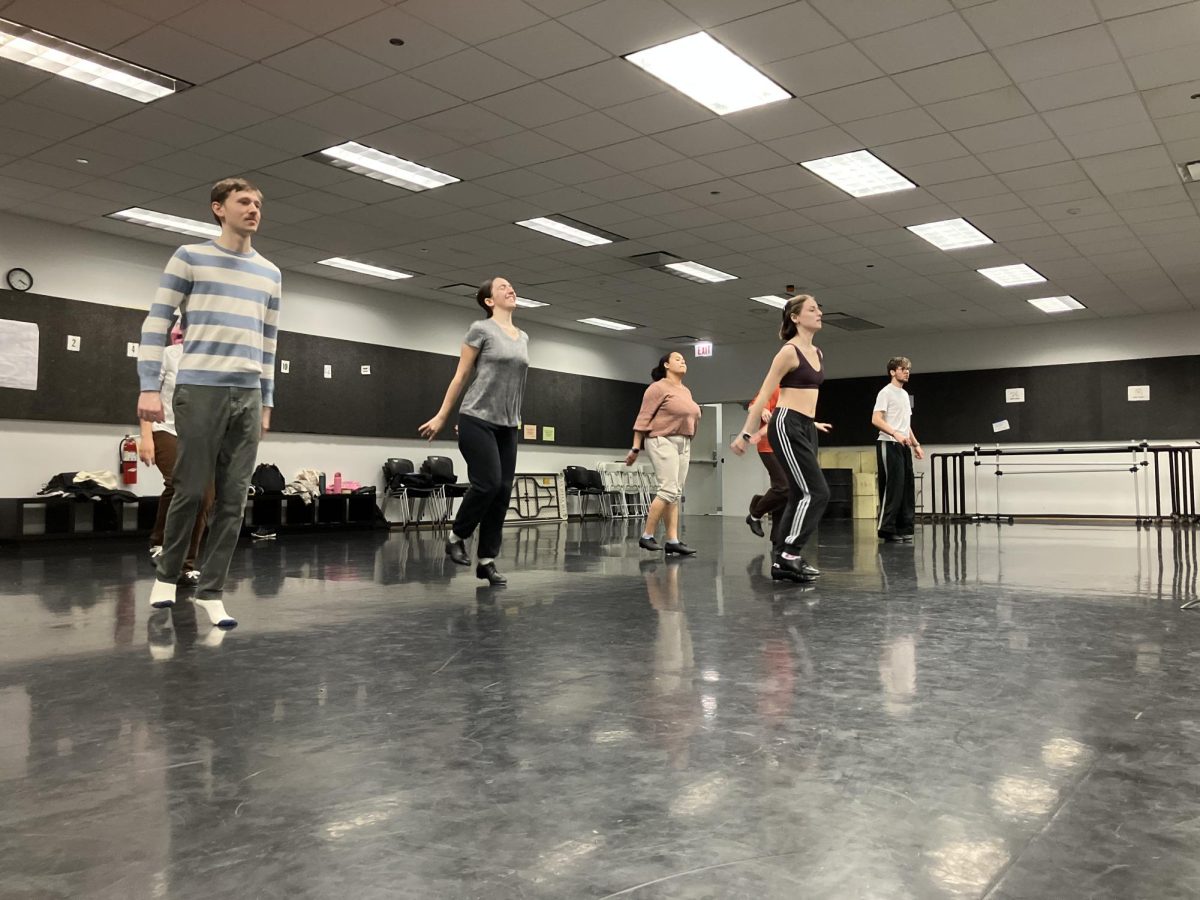As the world grapples with rising threats to democracy, historian and journalist Rajmohan Gandhi, grandson of Indian independence leader Mahatma Gandhi, spoke at “Democracy on the Ropes: What do we do now?” Over 50 people crowded the fifth floor event space of the Student Center on Thursday, April 3 to attend the conversation focusing on the state of human rights and democratic ideals.
The event was hosted as a partnership between the office of the provost and We Are One Humanity, a website launched in October 2024 by Gandhi, “inviting everyone to explore ways of preserving or restoring goodwill, human rights and democratic ideals in our world.”
The event was moderated by Margaret Smith, board member for We Are One Humanity and facilitated by Faisal Lalani, executive editor WAOH.
“We want to assure all of you that the editorial team of We Are One Humanity has not brought you here today because we think we have a secret solution to reveal,” Smith said. “Rather, we have gathered today to share in the reality of this moment and to open ourselves to conversation with others.”
Smith led the conversation asking Gandhi to compare the way that democracy is being attacked in India to what Americans have been seeing over recent months.
The Associated Press previously reported that the Modi government is reversing India’s decadeslong commitment to multiparty democracy and secularism.
“There is a wonderful laundry machine in India where politicians get beautifully and instantly clean when they switch from one party to the other,” Gandhi said.
Gandhi said that one similarity between India and the United States’ current political controversies is the unfair imprisonment of journalists and innocent citizens.
The governments of the United States and India, despite both being democratic nations, differ significantly in their political structures. The U.S. operates under a federal system with a separation of powers, while India follows a parliamentary system that emphasizes party-driven leadership and centralized authority.
Gandhi attributed the lack of conversation in the U.S. to the “facility with ease with which people blame some groups of people for the problems” and labeled these conversations as fundamental.
“Yes, we have different histories,” Gandhi said. “We have had different political aims, but how about understanding one another?”
Walter Payton College Prep first-year Keilee Billena and Mia Mathew said that they knew the opportunity to hear Gandhi speak was one they couldn’t pass up because of the “division” in the country at the moment.
“There’s so much division right now in our country, with political parties or different stances on issues, and I think it’s important to have issues, to come together and hear new perspectives,” Mathew said.
When asked to explain some similar dynamics Gandhi has seen between India and the United States historically is the lack of understanding between different cultures and groups.
“All of us have opinions about other groups, but we don’t have knowledge about other groups,” Gandhi said.
Mathew said that she left the event “feeling inspired.”
“I liked the ideas about community and making sure that you’re thinking about history and different events from multiple perspectives and I agree I think it’s important to come together and learn more about the world around us,” Mathew said.
Drawn by the chance to hear Gandhi speak, University of Chicago Booth School of Business students Sumedha Chakravarti and Divya Agrawal attended the event together.
“As an Indian, it was a really lovely event,” Chakravarti said. “It’s very cool getting to meet the grandson of Mahatma Gandhi himself, and he had great things to say.”
Agrawal said that being able to hear first hand accounts, especially from someone whose opinions have been historically valued and “has made a dramatic influence in terms of just framing our history” has been vital.
“The problems that Gandhi solved, they’re not fully solved yet,” Agrawal said. “So how can we, as a society, kind of going back to what they were talking about, like, new versus old, what are like the new changes that are happening? How can we be a part of that change?”
Smith acknowledged a nationwide “Hands Off” anti-President Donald Trump protest to take place this Saturday, April 5. The movement is expected to be the largest single-day protest since he entered office.
“These are peaceful demonstrations, and it’s hard to think about it without thinking about Gandhi,” Smith said.
A rally will be held by Indivisible Chicago, a progressive organization of activists and coalition of neighborhood chapters throughout the Chicago area, at Daley Plaza beginning in the afternoon on April 5.
“He’s obviously seen historical events like this, and history tends to repeat itself, so it was great getting his take and understanding that we need to be more unified,” Chakravarti said.
For the conclusion of the panel, guests were given cards at their seats to write down their questions that Lalani would relay to the group. Lalani referenced a joke made by Gandhi previously in the conversation regarding “not getting any younger” and asked how he extends optimism to individuals and communities that feel politically disempowered or historically disencouraged.
“I would invite each one of you to let your own courage, your own compassion, your own humanity, your own desire to do something relevant and useful come out,” Gandhi said.
Chakravarti said that she appreciates how much faith Gandhi puts in the younger generations.
“I’m just curious to see what takeaways people have as you know, the political environment just continues heating up,” she said.
Agrawal left the event wondering what actions she and other students can take to combat all of the things going on in the world politically.
“Especially because we’re grad students, I think a lot of the things that we hear about at school are like, oh, these are, like, the things that are happening,” Agrawal said. “Then it comes to the question, what now? Like, what next?”
Copy edited by Patience Hurston





